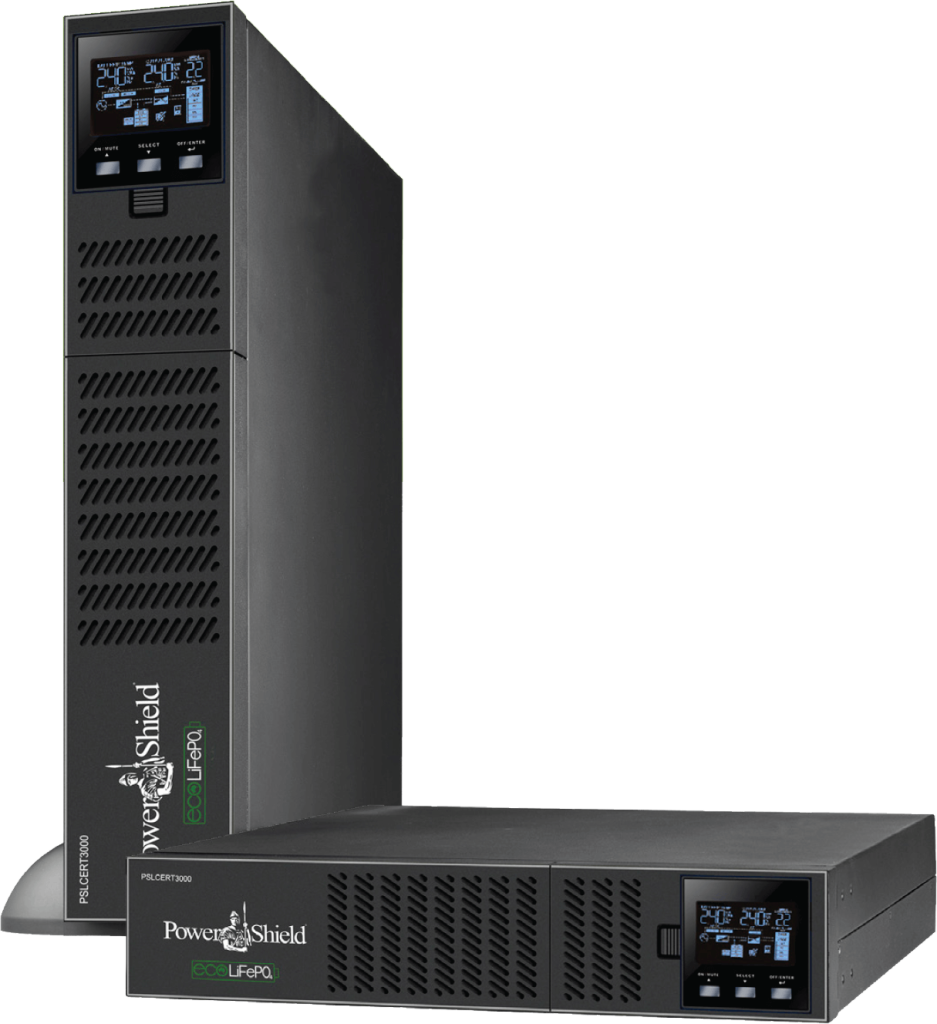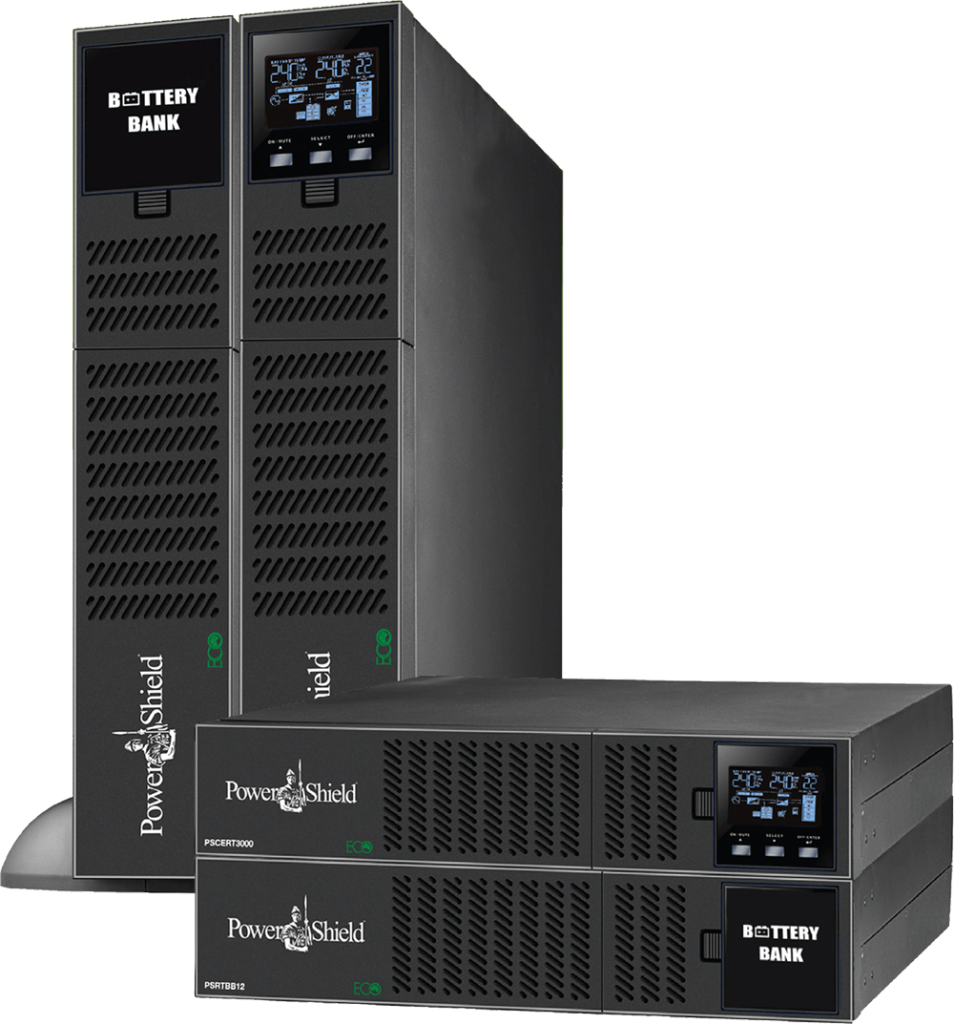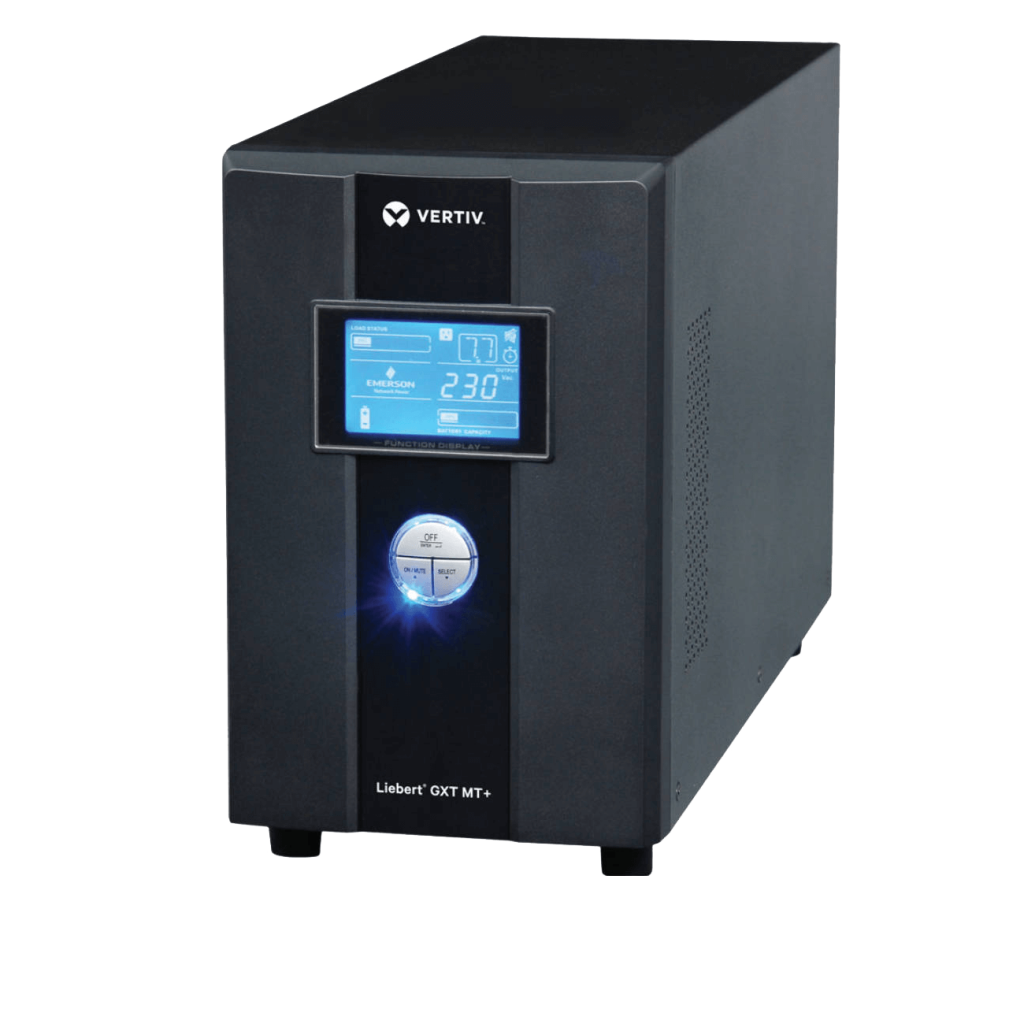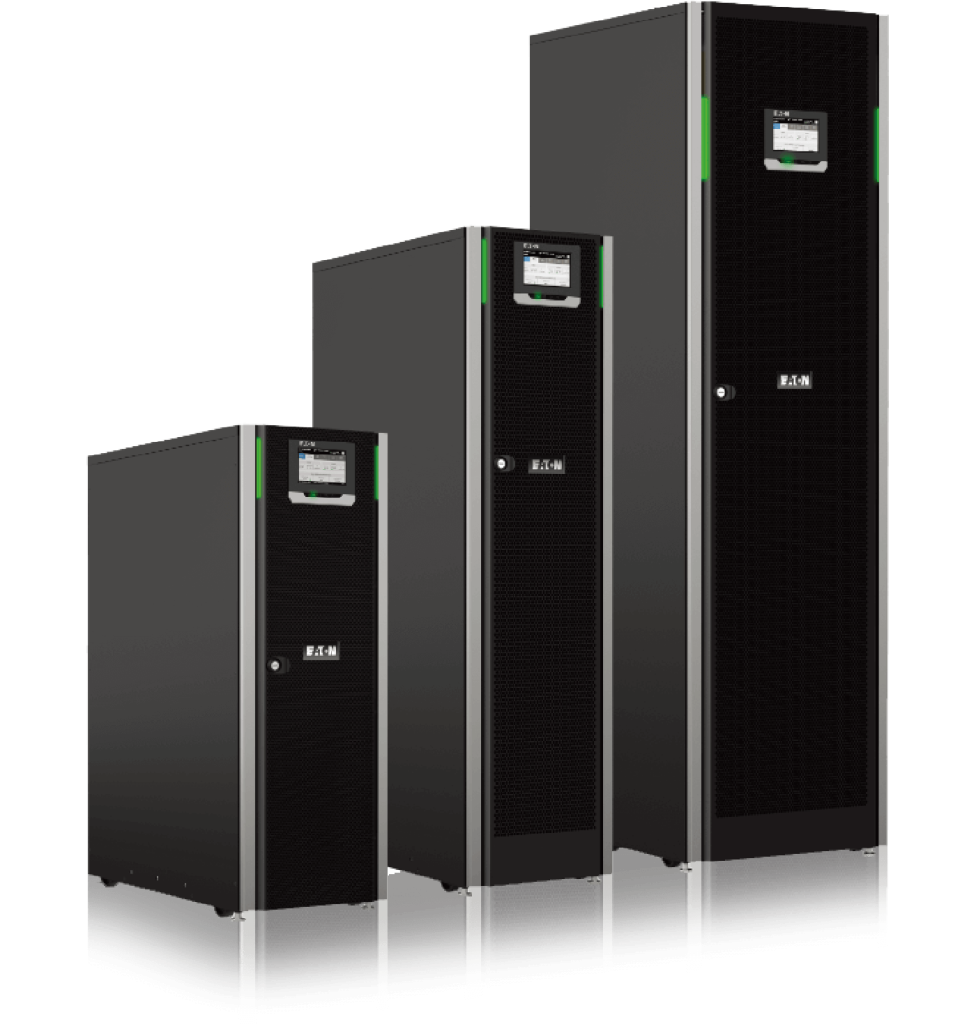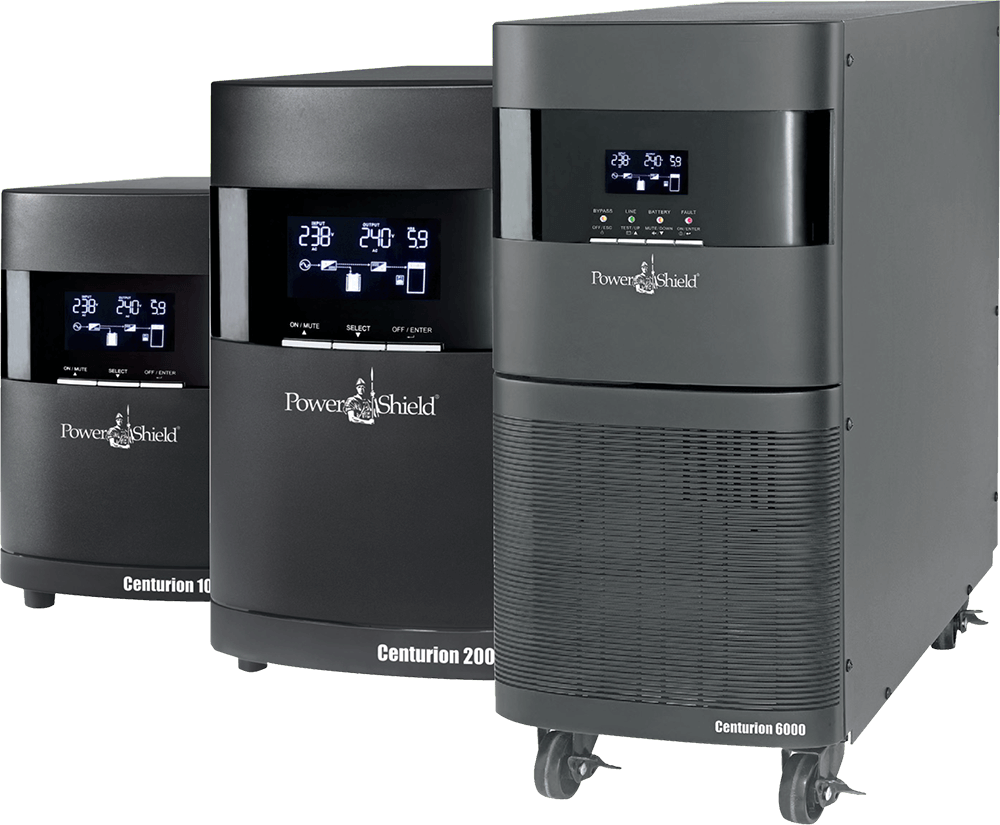
PowerShield Centurion Tower
Technology:
Power rating:
Phase:
Configuration:
Warranty:
The PowerShield Centurion Tower UPS is a True Online Double Conversion system engineered to deliver robust power protection for critical equipment. Its adaptable software management and hardware options provide flexibility to tailor a solution for any application.
Developed meticulously by PowerShield engineers, the Centurion Tower UPS sets the benchmark for UPS technology worldwide. It meets the exacting demands of the sophisticated Australian power consumer, standing out as a leader in its class.
Also available in low voltage models.
- Exceptional Surge Protection
- Output Power Factor 0.9pF
- Informative LCD Display
- Programmable Outlets
- Emergency Power Off Function (EPO)
- Expandable Back Ups time via External Battery Modules
- HID Communication via USB
- Netguard Software Communication via USB
- Hot Swappable Batteries
- Standard Extra-Large Charger
- Advanced ECO Mode
- Many Optional Extras
For pricing and further information, please phone Power On Australia on 1300 66 24 35 or complete the enquiry form below.
- Exceptional Surge Protection
- Output Power Factor 0.9pF
- Informative LCD Display
- Programmable Outlets
- Emergency Power Off Function (EPO)
- Expandable Back Ups time via External Battery Modules
- HID Communication via USB
- Netguard Software Communication via USB
- Hot Swappable Batteries
- Standard Extra-Large Charger
- Advanced ECO Mode
- Many Optional Extras
FAQs
Are your UPS' reliable?
UPS’ are very reliable when used in accordance with the manufacturers instructions. Like many electronic devices, they can be easily mistreated.
How do UPS' work?
UPS’ work by preventing interruption of Power to the critical load. This is usually happens by providing a secondary source of energy – like a battery – to run your critical load. There are a handful of different methods for UPS operation, that deliver somewhat different results.
How do UPS' work in a data centre?
Data Centres use a large Centralised UPS array, backed up by generators as well as the grid, to keep power available to the data centre uses for many hours in circumstances when grid power has failed.
What UPS do I need?
The UPS you will need will absolutely be defined by what your load is. A PC will need a different size UPS to a refrigerator, or a variable speed drive. That’s because the loads are very different in nature.
Where is UPS used?
A UPS is expected to be used in any clean, dust Free, temperature and humidity controlled location. Using a UPS outdoors, or in a vehicle or on a ship or an oil rig requires specialist UPS systems.
Which UPS is best for home?
If you are using your UPS in a major city home, and for typical home IT equipment, like PC’s, TV’s and modems, a ‘line interactive’ UPS is all that is generally required. In areas where your power supply is weak or poor quality, or your supported equipment is more critical in nature – like a CPAP machine or humidicrib, it is best to get specialist advice.
Which UPS battery is best?
UPS batteries are divided generally into 2 types. High rate batteries and non high rate batteries. High rate batteries can support a large burst of energy for short periods of time – like 30 minutes, but have a comparatively short service life. Non high rate batteries are designed for long slow discharges, and can often support equipment for many hours, and will last near double the lifespan of high rate batteries. Battery type and sizing is complex, best to seek professional advice here.
Which UPS is best for Computer or Gaming PC?
The best type of UPS is best for every type of application because of the way it’s expected to work. These are double conversion UPS’s, sometimes called true on line UPS’s. They work very differently to more economical UPS’s, are more complex, more reliable, more powerful and significantly more expensive that the low cost UPS’s. If ‘best’ means highest reliability and best quality power output with fewest power breaks to you, get Double Conversion.
Why is UPS used?
A UPS is used solely to prevent or limit interruption of mains power to critical loads. Other add on functions like surge protection, alarms and communications and remote control of servers is not a core UPS function.
If you have a question we haven’t featured in our FAQs, please use the form above and we’ll get back to you as soon as possible. Thank you.

